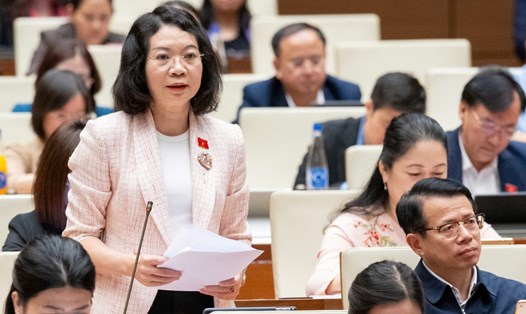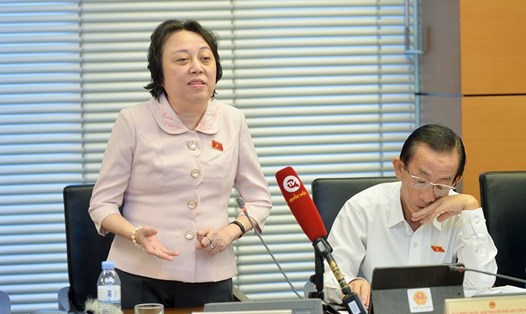On November 4, the National Assembly held a plenary session discussing the socio-economic situation.
Speaking, delegate Nguyen Minh Tam (Quang Binh delegation) said that Vietnam is entering a period of population aging, an issue that has been frankly acknowledged in the Government's report.
By 2036, Vietnam will officially enter the period of aging population structure; in 2039, Vietnam will end the period of golden population structure and enter the period of very aging population structure.
This leads to many consequences such as: Growth rate decreases; creating a vital need to improve the quality of human resources and increase other productivity to maintain growth.
Delegates pointed out that population aging will also put increasing pressure on the pension and health systems; create additional challenges for the country's financial resources; the care system for the elderly will soon become an obstacle.
According to the delegate, given the fact that Vietnam is entering a period of aging population, it is necessary to maintain the replacement fertility rate throughout the country. Adjusting the Population Ordinance with the Population Law has become urgent.
"In order to firmly maintain the replacement birth rate nationwide, we request that competent authorities consider whether the disciplinary measure for having a third child is still appropriate or not in order to make appropriate and timely adjustments," said delegate Nguyen Minh Tam.
Female delegate of Quang Binh Delegation proposed that in the law-making process, the Government should focus on a number of points.
First, ensure regulations on each couple's right to decide on having children; time of birth; number of children and spacing.
These need to be specified and supported by accompanying measures such as: Enterprises are not allowed to fire pregnant women; personal income tax exemptions for couples who are pregnant or raising young children.
Second, the country has more than 16 million elderly people (accounting for more than 16% of the population). However, only about 5.4 million people receive pensions, monthly social insurance benefits, meritorious service benefits and social benefits. Thus, about 65% of the elderly have not received social benefits from the State.
To ensure the quality and quantity of care facilities for the elderly, delegates proposed encouraging businesses to participate in elderly care.
It is necessary to exempt or reduce corporate income tax for nursing home development projects in the first few years; provide preferential loans with low interest rates; create a support fund from the Government to provide grants or credit guarantees for nursing home development projects.
There are policies to encourage and attract foreign investors to invest in the field of elderly care in Vietnam.
Previously, in the group discussion session, delegate Pham Khanh Phong Lan (HCMC Delegation) was concerned about the fact that party members who have a third child are still disciplined.
Delegates suggested that the authorities should soon amend these regulations. The disciplinary regulation for party members having a third child may have been correct in the past, but now that Vietnam's birth rate is low, the viewpoint on having children needs to be changed.











